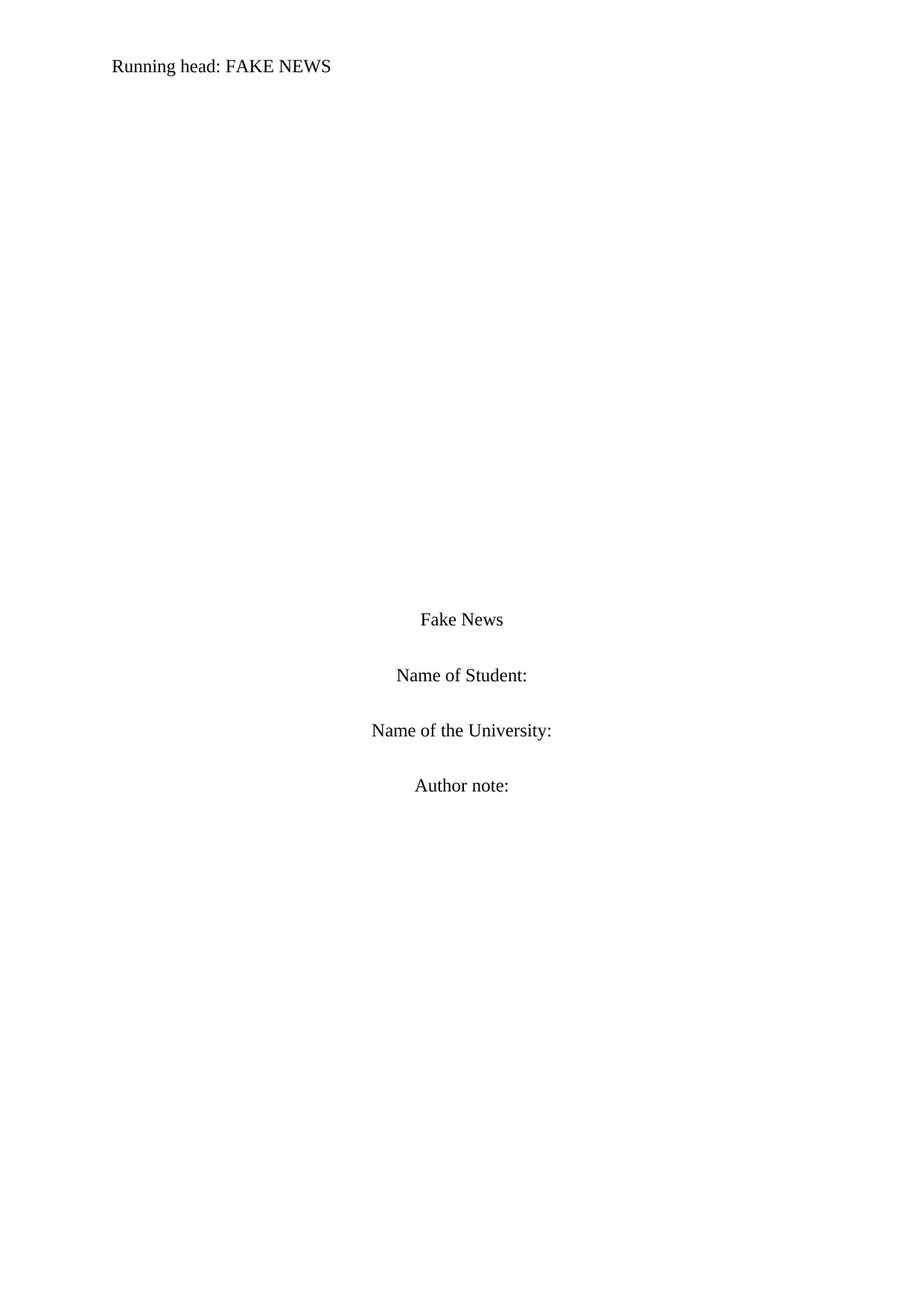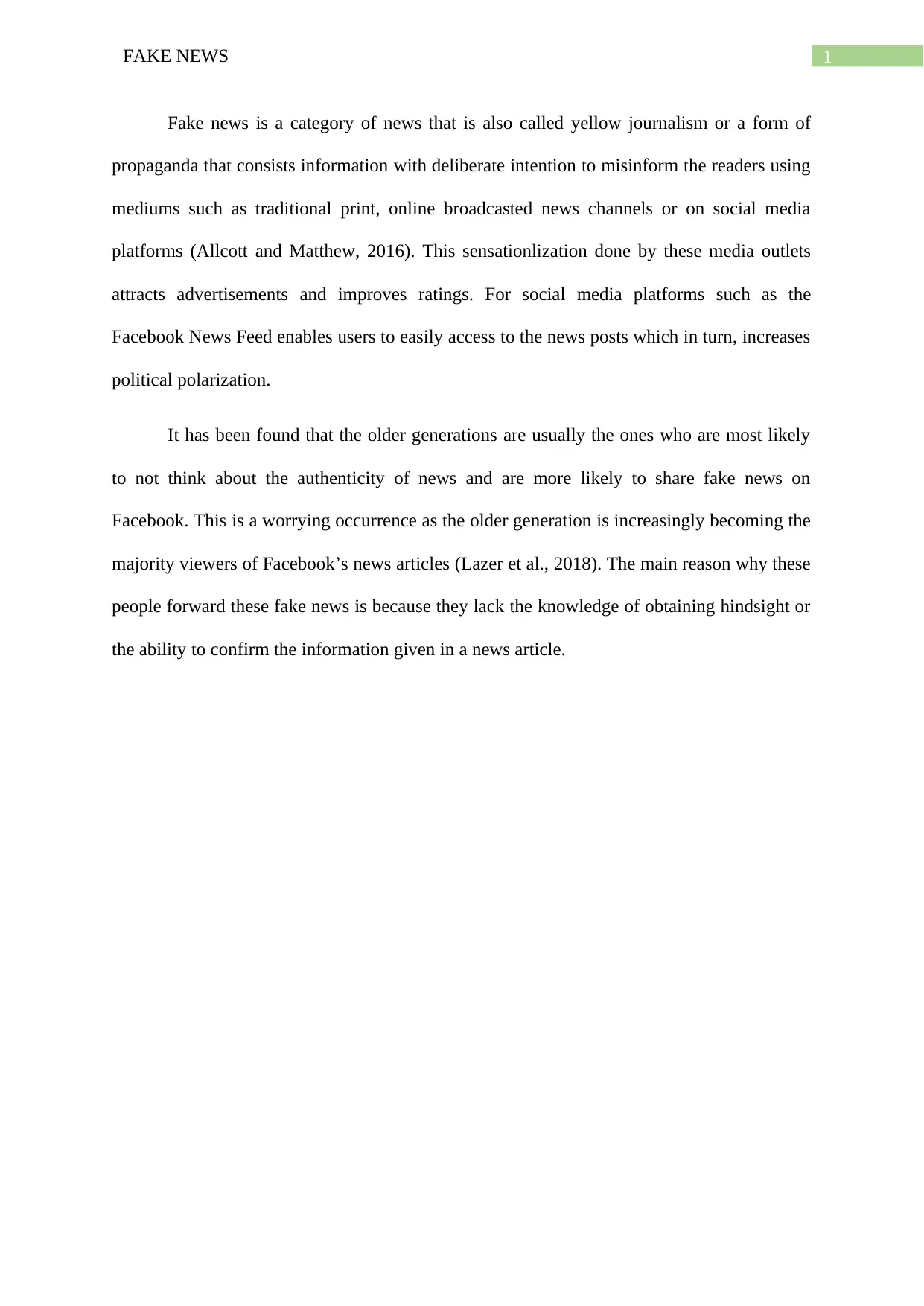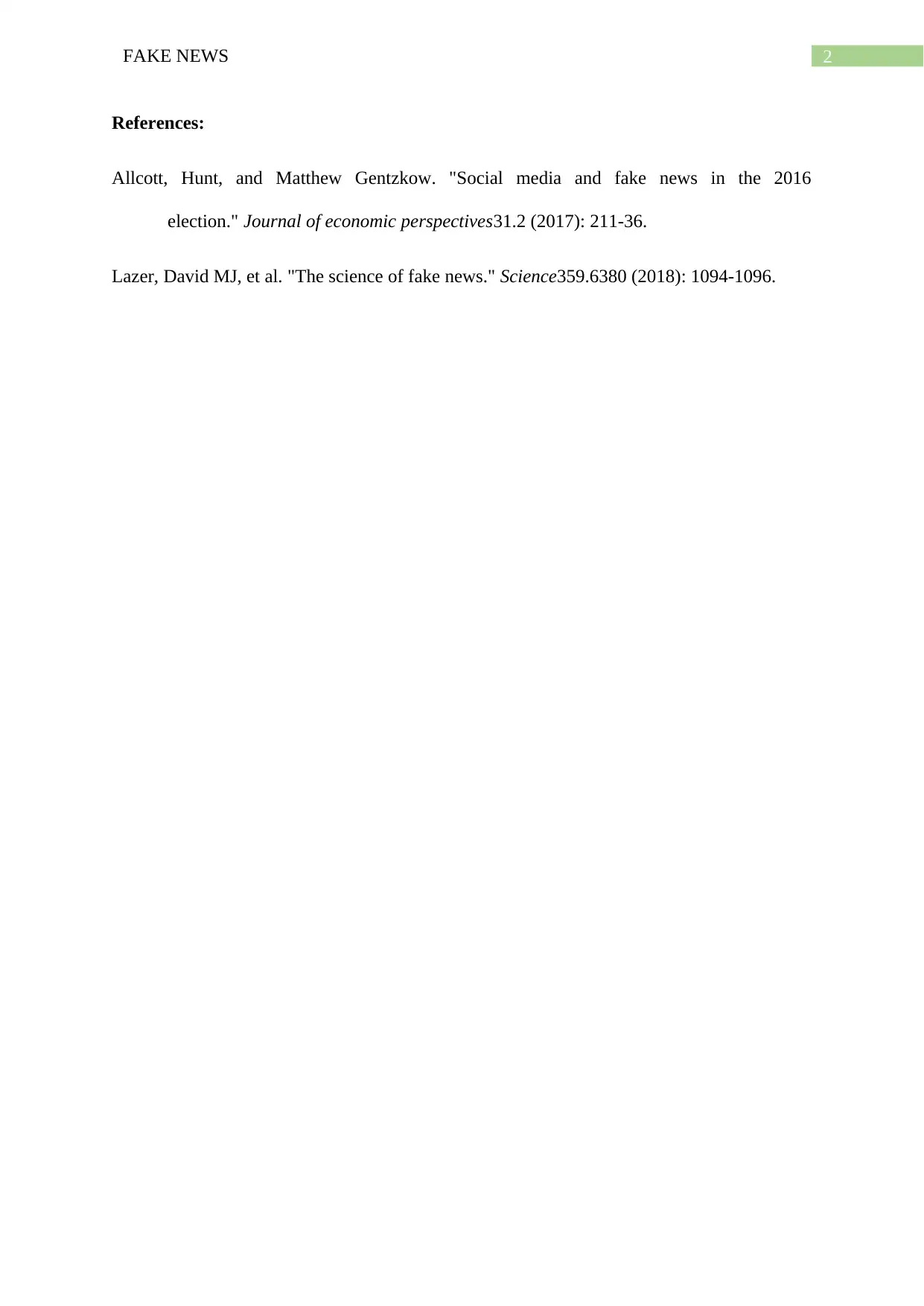Fake News: Social Media and Election Results - University Assignment
VerifiedAdded on 2022/12/22
|3
|268
|85
Homework Assignment
AI Summary
This assignment examines the phenomenon of fake news and its impact on social media and election results. The assignment explores the reasons behind the sharing of false information, particularly among older generations, who may lack the ability to verify the authenticity of news articles. It also discusses the role of social media platforms like Facebook and Twitter in the spread of misinformation and considers whether these platforms should censor such content. The assignment references academic sources to support its arguments, focusing on the effects of fake news on political polarization and the challenges of ensuring news veracity in the digital age. The assignment is a response to the increasing concern about the influence of false news websites on elections and public discourse.
1 out of 3









![[object Object]](/_next/static/media/star-bottom.7253800d.svg)